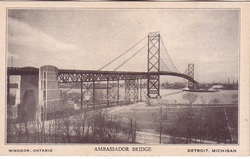
The 83 year old Ambassador Bridge between Windsor Ontario and Detroit Michigan is the busiest bridge in North America, accounting for 25% of the traffic in trade between Canada and the United States. It’s owned by an 85 year old American billionaire named Matty Moroun who makes $80 million a year off tolls and selling duty free gas and goods and
even more from the sale of gas at the border, and his fleet of trucks that use the bridge to transport automotive parts back and forth across the bridge.
The Canadian government wants to replace the bridge with a new one,
which it will pay for. If you lived in Michigan, wouldn't you think that was a good idea? Economists call it an "amazingly sweet deal" for the people of Michigan. Moroun, however, is lobbying heavily for the people of Michigan to vote against the bridge . “Nothing is free” they are being told. Despite the fact that the Canadian taxpayers will foot the bill, the message is that “Someday, your grandchildren will be on the hook to pay for that bridge.” As a lobbyist, Maroun is using his extensive finances to back his campaign to continue to have a monopoly over bridge traffic.
At the heart of the Ambassador Bridge story is ideology. What best serves the common good? Tax-payer funded infrastructure that everyone pays for and everyone gets to use? Or privately owned services from which a handful of people profit? And how do we balance the common good with economic freedom? Should an individual have the freedom to benefit from control of an essential service ?
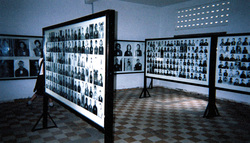
Khmer Rouge Prison, Cambodia,
What is the nature of humanity? Why is there torture, genocide, and terrorism in our world? Why do some people delight in tormenting others, as we recently saw in the
Amanda Todd case? And is there such a thing as "evil"? If there is, where does it come from and how do we stop it as a society?
Evil shows itself in the deliberate act of hurting someone or allowing someone to be hurt. It is describes as immorality or being wrong. Sometimes it is just defined as "the absence of good" or the absence of god, however you perceive that to be.
Cambridge professor Simon Baron-Cohen has explored the neuroscience between evil in his book "The Science of Evil."
Read an interview with the professor as broadcast on National Public Radio in the U.S. or watch the clip below. His studies have shown that evil sometimes comes from an absence of empathy, or the inability to recognize the feelings of others.
If we accept Edmund Burke's statement that Edmund Burke stated "All that is necessary for the triumph of evil is that good men do nothing," how should we respond to evil? Incarceration? Prevention? The death penalty? No matter where you believe evil comes from, dealing with it comes at the place where the common good intersects with individual rights and freedoms.
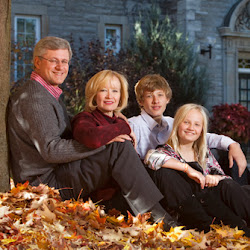
Mr. Harper is the Prime Minister of Canada but you can't vote for him. Even if you are 18 and legally entitled to vote. If you lived in the Calgary Southwest riding, you could have voted for him to be an MP. If you were a card carrying member of the Conservative Party of Canada, and a delegate to their leadership convention, you could have voted for him to be leader of the party.
The Prime Minister of Canada is the leader of the federal political party that holds the most seats. We don't vote for our Prime Minister. On November 6, the people of the United States will be electing their president. If you were an eligible American voter, could you vote directly for Obama or Romney?
The President of the United States is not directly elected either. He is elected by people named "Presidential Electors" through a process known as the Electoral College. These people pledge to vote for a particular presidential and vice presidential candidate. Electors are appointed by the state legislature through various means, varying from state to state. C Occasionally "faithless electors" vote for different candidates than those they pledged to support. Then the regular voters vote the elector ...and it is the elector who votes for president.
There are many differences between the electoral process in Canada and the United States. Which one do you think is more democratic?

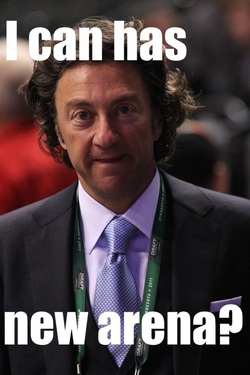
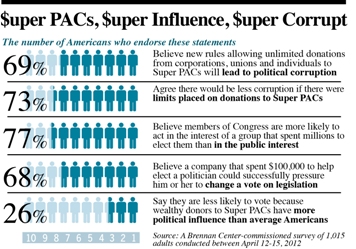


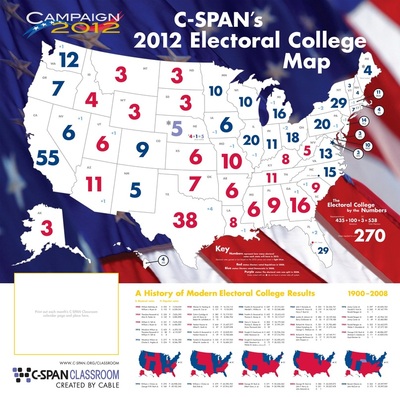
 RSS Feed
RSS Feed